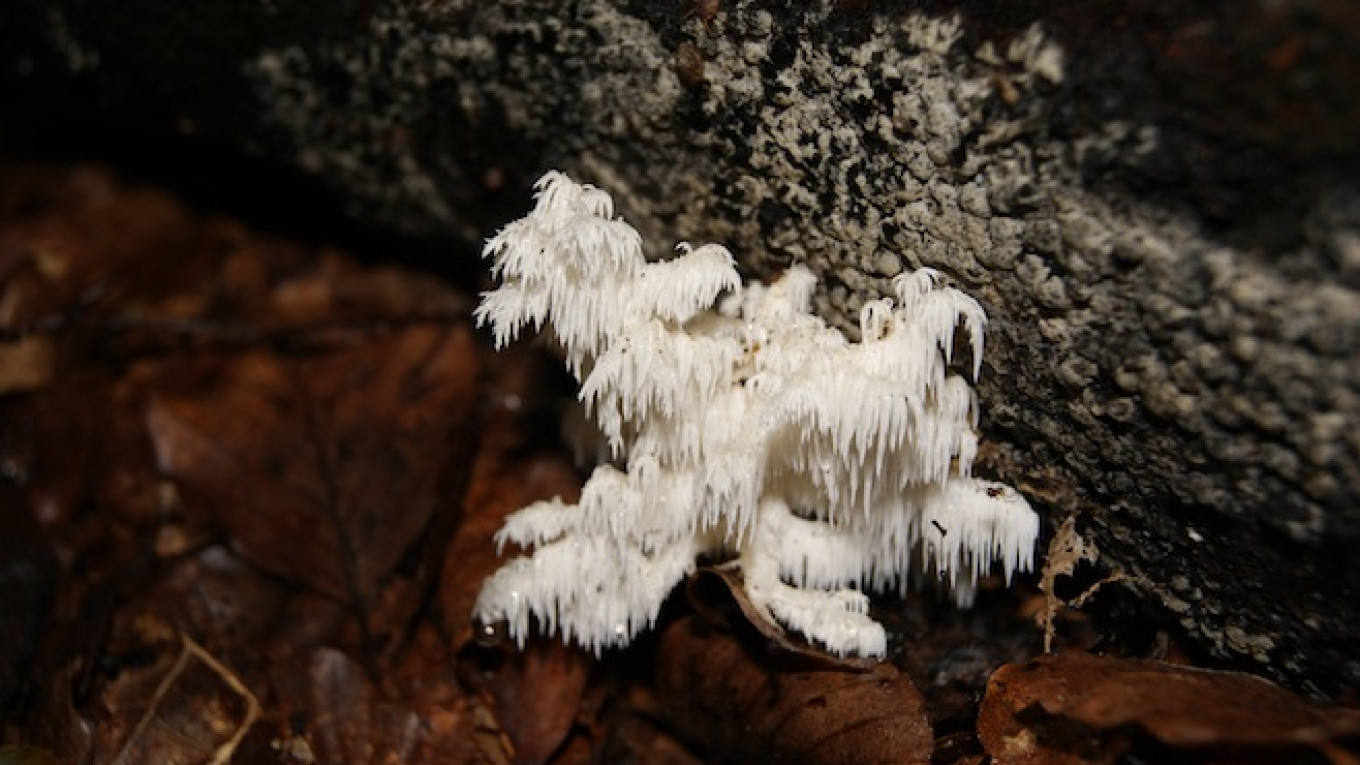An extremely rare mushroom used by traditional healers to help treat depression has been discovered at a nature reserve in Siberia.
The edible Hericium coralloides fungi was found by scientists at the Sayano–Shushenskaya reserve in the Krasnoyarsk region, the park's website reported Friday — the first time the rare species has been spotted in the area.
The mushroom, which is milky-white in appearance and looks like a coral, is listed in the Red Book — a log dating back to Soviet times used to record rare and endangered animals, plants and fungi that exist within Russia and its surrounding waters.
Hericium coralloides is revered by practitioners of traditional Chinese medicine and is used to treat problems with the gut, the respiratory system and to regulate diseases of the nervous system. It is also used by some witch doctors as a cure for long-term depression.
The mushroom can grow to a width of 40 centimeters and is found in parts of North America, Europe and Asia. It typically spawns between the months of July and October.
A Message from The Moscow Times:
Dear readers,
We are facing unprecedented challenges. Russia's Prosecutor General's Office has designated The Moscow Times as an "undesirable" organization, criminalizing our work and putting our staff at risk of prosecution. This follows our earlier unjust labeling as a "foreign agent."
These actions are direct attempts to silence independent journalism in Russia. The authorities claim our work "discredits the decisions of the Russian leadership." We see things differently: we strive to provide accurate, unbiased reporting on Russia.
We, the journalists of The Moscow Times, refuse to be silenced. But to continue our work, we need your help.
Your support, no matter how small, makes a world of difference. If you can, please support us monthly starting from just $2. It's quick to set up, and every contribution makes a significant impact.
By supporting The Moscow Times, you're defending open, independent journalism in the face of repression. Thank you for standing with us.
Remind me later.






